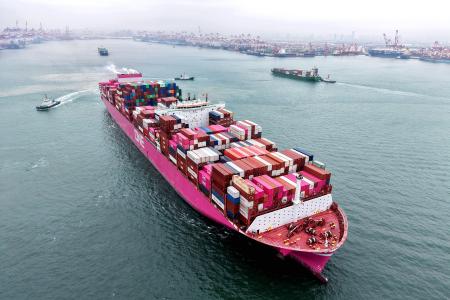Vote on carbon tax for shipping postponed for a year, consequences for alternative shipping fuels
On October 17, the International Maritime Organization (IMO) voted 57 – 49 to postpone the adoption of its proposed “Net-Zero Framework” (which included a global carbon tax/levy) until 2026. The delay is largely due to pressure from countries including the United States, Saudi Arabia and China, which questioned the costs and competitiveness impacts of the tax.
IMO member states already agreed in 2023 that the shipping industry would reach net zero emissions by 2050. One of the measures proposed was a tax on the industry’s climate pollution. The shipping industry would have paid the tax into a fund created by the IMO, to encourage emissions reductions and raise funds for climate action.
For Europe, the FuelEU Maritime Regulation[1] remains in force ( implemented since 1 January 2025) setting declining greenhouse-gas intensity targets for ships calling at EU ports. Because the IMO global framework vote was delayed, there is now a mismatch in timing between global maritime regulation and regional (EU) regulation which increases regulatory uncertainty for ship-owners and fuel producers: while FuelEU gives a clear EU path, the absence of a global signal means investments in alternative fuels may be hampered by fragmented regimes and uncertain future harmonisation.
A few days after the IMO decision, the Global Maritime Forum met in Antwerp for their annual summit. Despite the negative sentiment about the IMO delay, industry leaders such as Alexander Saverys (CEO of CMB.TECH) and Jacques Vandermeiren (CEO of Port of Antwerp‑Bruges) stressed the decision does not change the course of the decarbonisation transition: “The energy transition in shipping is irreversible"






